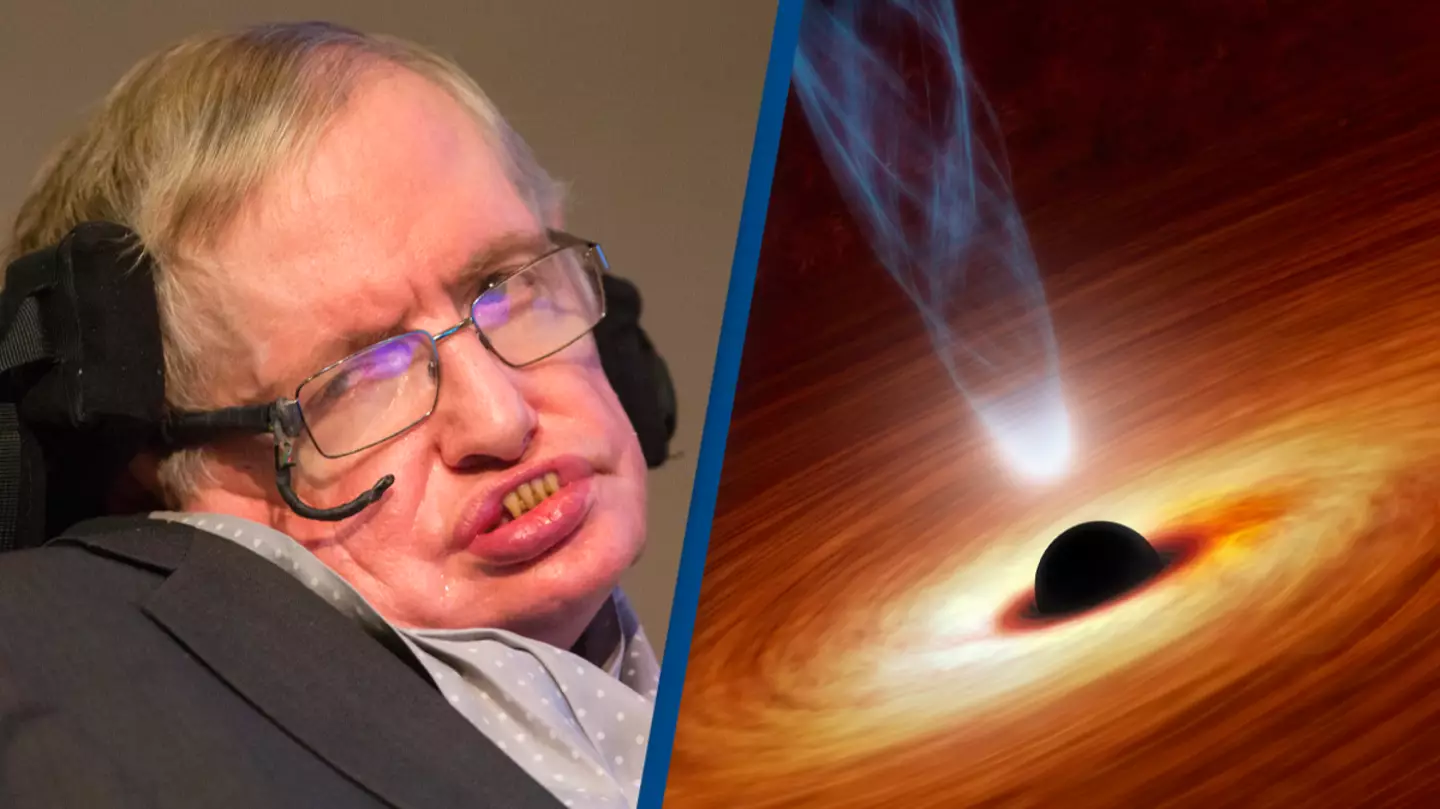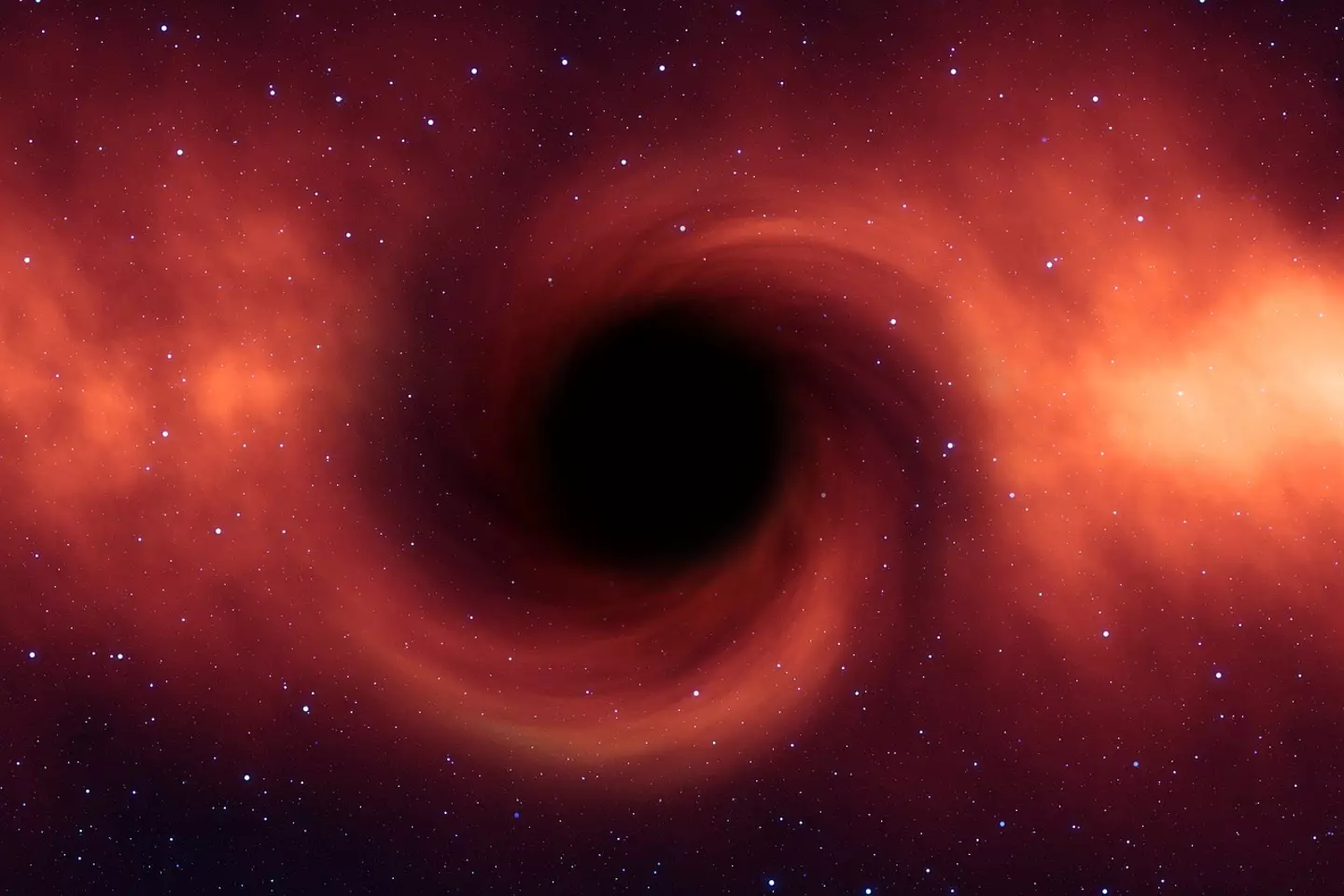
Looking for something else to add to your growing list of anxieties to keep you awake at night? A new study has found that the late Stephen Hawking's famous theory of how black holes die could mean our entire universe is doomed to evaporate.
The English theoretical physicist made the prediction back in 1974 that black holes die by evaporating in a now-famous theory known as 'Hawking radiation'.
According to quantum physics theory and Einstein's theory of gravity, particles spontaneously form and annihilate under an intense gravitational environment located at the mouths of black holes, aka the event horizon.
Advert
According to Hawking's radiation theory calculations, some particles remain trapped behind the event horizon, while others escape to the outside in the form of Hawking radiation.
When enough particles escape over a period of time in a gradual draining of energy, the entire black hole will simply evaporate.
And with Hawking radiation being observed around a black hole in our universe, it seems the late, great genius' predictions were correct.
But at the time, that was the only place scientists were looking for the phenomenon.
But a new study published in the journal Physical Review Letters is set to radically revise that theory.

It suggests that Hawking radiation isn't just created by stealing energy from black holes with immense gravitational environments - but from all objects with enough mass to warp the fabric of spacetime.
Translation: all objects with mass could eventually just disappear, that's according to scientists from Radboud University who were mulling over this theory.
Heino Falcke, who led the study, explained in a statement on Friday (2 June): "Objects without an event horizon, such as the remnants of dead stars and other large objects in the universe, also have this sort of radiation.
"And, after a very long period, that would lead to everything in the universe eventually evaporating, just like black holes."
He added: "This changes not only our understanding of Hawking radiation but also our view of the universe and its future."
Study co-author, Walter van Suijlekom, continued: "We show that far beyond a black hole the curvature of spacetime plays a big role in creating radiation."
What the researchers' theory means in reality isn't clear and their calculations will need further testing before they're confirmed.
It seems that thankfully it's nothing that's going to happen in the near future if their calculations are correct.
It's estimated that it takes black holes longer than the current age of the universe to evaporate, so no need to stress just yet.
Topics: News, Science, Space, Black Hole
